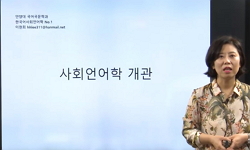고령화 사회로 접어들면서 노화에 따른 의사소통 능력의 저하에 대한 관심이 증대되고 있다. 본 연구는 고령자의 성별과 교육정도(‘무학’ 집단, ‘1-6년’ 집단, ‘7년 이상’ 집단)에 따른...
http://chineseinput.net/에서 pinyin(병음)방식으로 중국어를 변환할 수 있습니다.
변환된 중국어를 복사하여 사용하시면 됩니다.
- 中文 을 입력하시려면 zhongwen을 입력하시고 space를누르시면됩니다.
- 北京 을 입력하시려면 beijing을 입력하시고 space를 누르시면 됩니다.

성별과 교육정도에 따른고령자의 언어표현 능력의 차이 = Expressive Language Function in the Normal Elderly Effects of Gender and Educational Level
한글로보기https://www.riss.kr/link?id=A60002289
-
저자
최현주 (나사렛대학교 언어치료학과)
- 발행기관
- 학술지명
- 권호사항
-
발행연도
2012
-
작성언어
Korean
-
주제어
고령자 ; 언어표현 능력 ; 대면이름대기 ; 구어유창성 ; 정의하기 ; 성별 ; 교육정도 ; normal elderly ; expressive language ; confrontation naming ; verbal fluency ; verbal definition ; gender ; educational level
-
KDC
379.05
-
등재정보
KCI등재
-
자료형태
학술저널
-
수록면
131-146(16쪽)
-
KCI 피인용횟수
3
- 제공처
- 소장기관
- ※ 대학의 dCollection(지식정보 디지털 유통체계)을 통하여 작성된 목록정보입니다.
-
0
상세조회 -
0
다운로드
부가정보
국문 초록 (Abstract)
고령화 사회로 접어들면서 노화에 따른 의사소통 능력의 저하에 대한 관심이 증대되고 있다. 본 연구는 고령자의 성별과 교육정도(‘무학’ 집단, ‘1-6년’ 집단, ‘7년 이상’ 집단)에 따른 언어표현 능력의 차이를 알아보는 것을 목적으로 하였다. 연구대상은 경기 및 충청 지역에 거주하는 65세 이상 고령자 40명(남성 19명, 여성 21명)으로 하였다. 언어표현 능력은 단어수준으로는 대면이름대기(한국판 보스톤 이름대기 검사, K-BNT)와 의미적, 음운적 구어유창성 과제를, 문장수준에서는 단어 정의하기 과제를 사용하였다. 본 연구의 결과를 요약하면 다음과 같다. 첫째, 성별에 의한 차이는 K-BNT에서만 유의하게 나타났으며, 남성이 여성에 비해 높은 수행을 보였다. 둘째, 교육정도에 따른 세 집단 간의 차이를 살펴보면, 의미적 구어유창성 과제의 수행은 집단 간 차이가 유의하지 않았지만, K-BNT, 음운적 구어유창성, 정의하기 과제에서는 ‘무학’ 집단에 비해 ‘7년 이상’ 집단의 수행이 유의하게 높았다. 성별과 교육정도에 따른 상호작용 효과는 나타나지 않았다. 이와 같은 결과로부터 고령자의 언어표현 능력은 성별과 교육정도에 의한 차이가 나타나며, 교육정도에 의한 차이가 더 다양한 과제에서 나타남을 알 수 있다.
다국어 초록 (Multilingual Abstract)
Language impairment is an aspect of cognitive impairment that can be related to aging. This study looked at elderly people with normal cognitive function, seeking to determine if gender and level of education affect expressive language capacity. Forty...
Language impairment is an aspect of cognitive impairment that can be related to aging. This study looked at elderly people with normal cognitive function, seeking to determine if gender and level of education affect expressive language capacity. Forty normal elderly(19 males and 21 females) participated in the study. The tasks included a confrontation naming test(K-BNT), semantic and phonetic verbal fluency tasks, and a verbal definition task. The results were as follows: 1) Only performance on the K-BNT differed significantly according to gender. On the K-BNT the males performed better than females. 2) The K-BNT, phonetic verbal fluency, and verbal definition task scores all differed significantly according to educational level. These results suggest that expressive language performance in the elderly is strongly associated with the subject’s educational level.
목차 (Table of Contents)
- Ⅰ. 서론
- Ⅱ. 연구 방법
- 1. 연구 대상
- 2. 언어표현과제
- 3. 검사절차 및 채점기준
- Ⅰ. 서론
- Ⅱ. 연구 방법
- 1. 연구 대상
- 2. 언어표현과제
- 3. 검사절차 및 채점기준
- 4. 자료 및 결과 처리
- Ⅲ. 연구 결과
- Ⅳ. 논 의
- 참고문헌
- ABSTRACT
참고문헌 (Reference)
1 김향희, "한국판 보스톤 이름대기 검사(K-BNT)" 학지사 1997
2 강범모, "한국어 사용 빈도" 한국문화사 2009
3 강연욱, "치매노인을 대상을 한 K-MIMSE의 타당도 연구" 15 (15): 300-308, 1997
4 박경애, "언어발달지체아동과 정상아동의 보통명사 정의하기 능력 비교" 5 (5): 20-37, 2000
5 임성희, "알쯔하이머 치매 환자의 단어 정의하기 능력의 변화" 이화여자대학교 대학원 2010
6 강연욱, "서울신경심리검사(SNSB)" 휴브알엔씨 2003
7 사전연구회, "동아 새국어사전" 두산동아 2010
8 박태진, "노인의 인지신경기전" 한국인지및생물심리학회 16 (16): 317-336, 2004
9 강수균, "노인성 질환에 대한 언어 재활 프로그램" 24 (24): 51-78, 2001
10 김정완, "노년층 의사소통능력에 대한 문헌연구" 한국언어청각임상학회 14 (14): 495-513, 2009
1 김향희, "한국판 보스톤 이름대기 검사(K-BNT)" 학지사 1997
2 강범모, "한국어 사용 빈도" 한국문화사 2009
3 강연욱, "치매노인을 대상을 한 K-MIMSE의 타당도 연구" 15 (15): 300-308, 1997
4 박경애, "언어발달지체아동과 정상아동의 보통명사 정의하기 능력 비교" 5 (5): 20-37, 2000
5 임성희, "알쯔하이머 치매 환자의 단어 정의하기 능력의 변화" 이화여자대학교 대학원 2010
6 강연욱, "서울신경심리검사(SNSB)" 휴브알엔씨 2003
7 사전연구회, "동아 새국어사전" 두산동아 2010
8 박태진, "노인의 인지신경기전" 한국인지및생물심리학회 16 (16): 317-336, 2004
9 강수균, "노인성 질환에 대한 언어 재활 프로그램" 24 (24): 51-78, 2001
10 김정완, "노년층 의사소통능력에 대한 문헌연구" 한국언어청각임상학회 14 (14): 495-513, 2009
11 통계청, "고령자통계"
12 최현주, "경도 알츠하이머형 치매 환자의 범주유창성 과제에서의 범주특정적 손상 특징" 한국언어청각임상학회 15 (15): 572-580, 2010
13 Matarazzo, J. D., "Wechsler’s measurement and appraisal of adult intelligence(5th ed.)" Oxford University Press 1979
14 Botwinick, J., "Vocabulary ability in later life" 125 (125): 303-308, 1974
15 Dorze, G. L., "The effects of age, educational level, and stimulus length on naming in normal subjects" 16 (16): 21-29, 1992
16 Kempler, D., "The effects of age, education, and ethnicity on verbal fluency" 4 (4): 531-538, 1998
17 Tsang, H., "The effect of aging on confrontational naming ability" 18 (18): 81-89, 2003
18 Ardila, A., "Spontaneous language production and aging : Sex and educational effects" 87 (87): 71-78, 1996
19 Languis, M. L., "Sex differences in neuropsychologial function, In The neuropsychology of individual differences" Plenum Press 237-251, 1985
20 Botwinick, J., "Qualitative vocabulary test responses and age" 30 (30): 574-577, 1975
21 Bolla, K., "Predictors of verbal fluency(FAS)in the healthy elderly" 46 (46): 623-628, 1990
22 Obler, L. K., "On comprehension across the adult life span" 21 (21): 273-280, 1985
23 Yeudall, L., "Normative data stratified by age and sex for 12 neuropsychological tests" 42 (42): 918-946, 1986
24 Tombaugh, T. N., "Normative data stratified by age and education for two measures of verbal fluency : FAS and animal naming" 14 (14): 167-177, 1999
25 Borod, J. C., "Normative data on the Boston Diagnostic Aphasia Examination, Parietal Lobe Battery, and the Boston Naming Test" 2 (2): 209-215, 1980
26 Ostrosky-Solis, F., "NEUROPSI : A brief neuropsychological test battery in Spanish with norms by age and educational level" 5 (5): 413-433, 1999
27 Kemper, S., "Longitudinal changes in language production : Effects of aging and dementia on grammatical complexity, and propositional content" 16 (16): 600-614, 2001
28 Burke, D. M., "Language and aging, In The handbook of aging and cognition(3rd ed.)" Psychology Press 373-443, 2007
29 강연욱, "K-MMSE(Korean-Mini Mental State Examination)의 노인 규준 연구" 한국심리학회 25 (25): 1-12, 2006
30 Cabeza, R., "Functional neuroimaging of cognitive aging, In Handbook of functional neuroimaging of cognition" MIT Press 2001
31 Ratcliff, G., "Effects of literacy and education on measure of word fluency" 61 (61): 115-122, 1998
32 Neils, J., "Effects of age, education, and living environment on Boston Naming Test performances" 38 (38): 1143-1149, 1995
33 Welch, L. W., "Educational and gender normative data for the Boston Naming Test in a group of older adults" 53 (53): 260-266, 1996
34 Albert, M. S., "Changes in naming ability with age" 3 (3): 173-178, 1988
35 Connor, L. T., "Change in object naming ability during adulthood" 59 (59): 203-209, 2004
36 Brucki, S. M. D., "Category fluency test : Effects of age, gender and education on total scores, clustering and switching in Brazilian Portuguese-speaking subjects" 37 (37): 1771-1777, 2004
37 Loonstra, A. S., "COWAT metanorms across age, education and gender" 8 (8): 161-166, 2001
38 Mackenzie, C., "Adult spoken discourse : The influences of age and education" 35 (35): 269-285, 2000
39 Zec, R. F., "A longitudinal study of confrontational naming in the normal elderly" 11 (11): 716-726, 2005
40 Zec, R. F., "A cross-sectional study of the effects of age, education and gender on the Boston Naming Test" 21 (21): 587-616, 2007
동일학술지(권/호) 다른 논문
-
장애아동 및 통합교육에 대한 독일 예비교사들의 태도에 관한 연구
- 이화여자대학교 특수교육연구소
- 김기흥
- 2012
- KCI등재
-
- 이화여자대학교 특수교육연구소
- 박빛나
- 2012
- KCI등재
-
고등학교 점자사회교과서 시각자료 점역의 표현 형식과 정도 및 적절성 분석
- 이화여자대학교 특수교육연구소
- 이경림
- 2012
- KCI등재
-
다문화 교육을 위한 일반교육 교사와 특수교육 교사 간 역량 비교 분석
- 이화여자대학교 특수교육연구소
- 이정은
- 2012
- KCI등재
분석정보
인용정보 인용지수 설명보기
학술지 이력
| 연월일 | 이력구분 | 이력상세 | 등재구분 |
|---|---|---|---|
| 2022 | 평가예정 | 재인증평가 신청대상 (재인증) | |
| 2019-01-01 | 평가 | 등재학술지 유지 (계속평가) |  |
| 2016-01-01 | 평가 | 등재학술지 유지 (계속평가) |  |
| 2014-01-10 | 학술지명변경 | 외국어명 : 미등록 -> Special Education Research |  |
| 2012-01-01 | 평가 | 등재학술지 선정 (등재후보2차) |  |
| 2011-01-01 | 평가 | 등재후보 1차 PASS (등재후보1차) |  |
| 2010-01-01 | 평가 | 등재후보학술지 유지 (등재후보1차) |  |
| 2008-01-01 | 평가 | 등재후보학술지 선정 (신규평가) |  |
학술지 인용정보
| 기준연도 | WOS-KCI 통합IF(2년) | KCIF(2년) | KCIF(3년) |
|---|---|---|---|
| 2016 | 1.77 | 1.77 | 1.6 |
| KCIF(4년) | KCIF(5년) | 중심성지수(3년) | 즉시성지수 |
| 1.59 | 1.64 | 1.895 | 0.27 |




 RISS
RISS DBpia
DBpia







